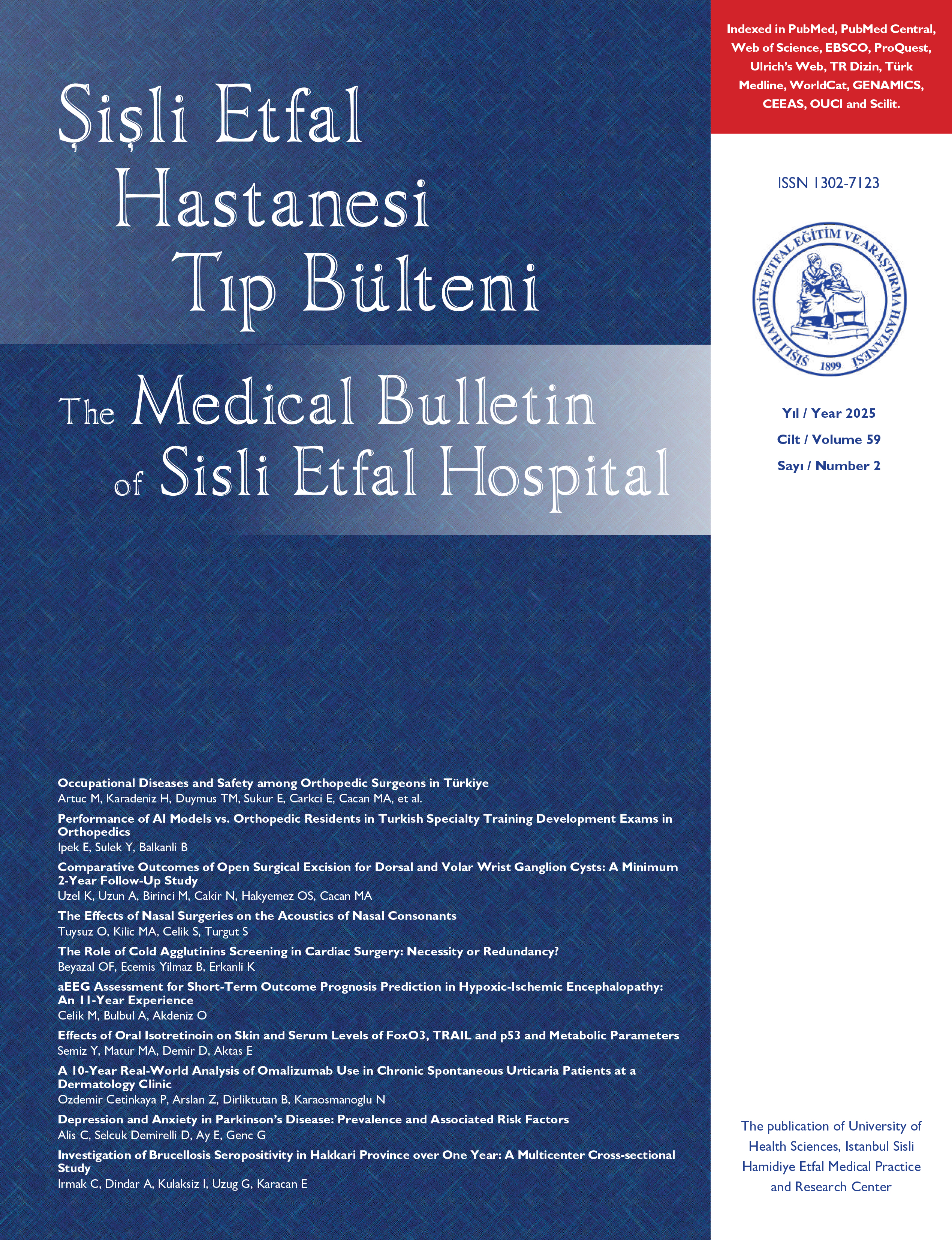
Postprandial Reactive Hypoglycemia
Yüksel AltuntaşDepartment of Endocrinology and Metabolism, University of Health Sciences Faculty of Medicine, Istanbul Sisli Hamidiye Etfal Training and Research Hospital, Istanbul,TurkeyReactive hypoglycemia (RH) is the condition of postprandially hypoglycemia occurring 2-5 hours after food intake. RH is clinically seen in three different forms as follows: idiopathic RH (at 180 min), alimentary (within 120 min), and late RH (at 240300 min). When the first-phase insulin response decreases, firstly, blood glucose starts to rise after the meal. This leads to late but excessive secretion of the second-phase insulin secretion. Thus, late reactive hypoglycemia occurs. Elevated insulin levels also cause down-regulation of the insulin post-receptor on the muscle and fat cells, thus decreasing insulin sensitivity. The cause of the increase in insulin sensitivity in IRH at 3 h is not completely clear. However, there is a decrease in insulin sensitivity in late reactive hypoglycaemia at 4 or 5 hours. Thus, patients with hypoglycemia at 4 or 5 h who have a family history of diabetes and obesity may be more susceptible to diabetes than patients with hypoglycemia at 3 h. We believe that some cases with normal glucose tolerance in OGTT should be considered as prediabetes at <55 or 60 mg/dl after 4-5 hours after OGTT. Metformin and AGI therapy may be recommended if there is late RH with IFG. Also Metformin, AGİ, TZD, DPP-IVInhibitors, GLP1RA therapy may be recommended if there is late RH with IGT. As a result, postprandial RH (<55 or 60 mg/dl ), especially after 4 hours may predict diabetes. Therefore, people with RH along with weight gain and with diabetes history in the family will benefit from a lifestyle modification as well as the appropriate antidiabetic approach in the prevention of diabetes.
Keywords: AGİ, DPP-IVInhibitors; metformin; microbiota; postprandially hypoglycemia; prediabetes; reactive hypoglycaemia; TZD.Postprandiyal Reaktif Hipoglisemi
Yüksel AltuntaşDepartment of Endocrinology and Metabolism, University of Health Sciences Faculty of Medicine, Istanbul Sisli Hamidiye Etfal Training and Research Hospital, Istanbul,TurkeyPostprandiyal reaktif hipoglisemi gıda alımından 2-5 saat sonra oluşan hipoglisemi durumudur.ilk 2 saat içinde olursa alimenter, 3.saatte oluşur ise idiopatik, 4. saatten sonra oluşur ise geç reaktif hipoglisemi olarak adlandırılır. OGTT normal olup 4.satten sonra glisemisi 55 veya 60 mg/dl olan kimseler geç reaktif hipoglisemi olarak değerlendirilmeli ve eğer birinci dereceden yakınlarında diyabet yüklülüğü var ve de kilo artışı eşlik ediyorsa bu tip hipogliseminin tip 2 diyabeti kuvvetli şekilde predikte edebileceğini düşünmekteyiz. Bu yüzden geç reaktif hipoglisemiyi tanısını koymak ve de böylelikle muhtemel bir diyabetin prevansiyonunu da erkenden yapabilmek için için bu özelliliği olan kimselerden istenecek OGTT'in en az 4 saatlik olmasına dikkat edilmelidir.Bu şekilde yaşam tarzı değişikliği yanında tip 2 diyabetin prevansiyonu açısından geç reaktif hipoglisemisi olup bozulmuş açlık glikozu (IFG) olanlarda metformin, AGİ, yine geç reaktif hipoglisemisi olup bozulmuş glukoz toleransı (IGT) olanlarda da metformin, AGİ, TZD, DPP-IVInhibitors, GLP1RA tedavilerinin gerektiğinde diyabet prevansiyonunda yeni alternatif bir tedavi yaklaşımı olabileceğini düşünmekteyiz.
Anahtar Kelimeler: Reaktif hipoglisemi, postprandiyal hipoglisemi, metformin, AGİ, TZD, DPP-IVInhibitors, mikrobiyotaManuscript Language: English



















